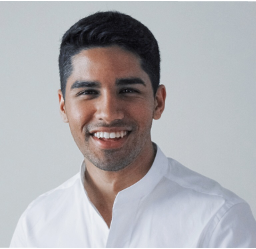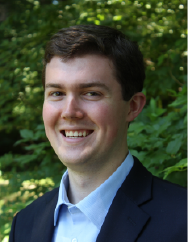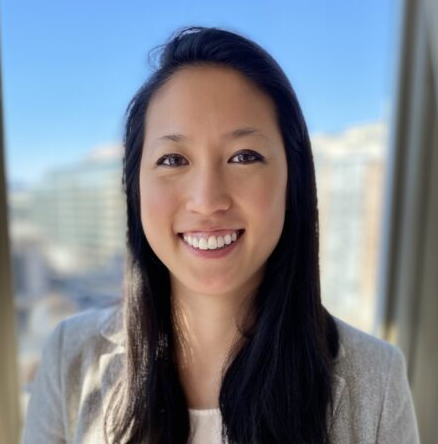Ethical Tech and Kenan Institute for Ethics Case Competition
Congratulations to the winning teams and a huge thank you to all participants!
1st Place: Nima Agah, Sebastian Williams and Sara Ann Brackett
2nd Place: James Gao, Shreya Joshi, Darshan Vijaykumar, Matthew Lee
3rd Place: Niharika Vattikonda, Jessica Edelson, Jonathan Browning
The Ethical Tech & Kenan Institute for Ethics Case Competition, co-hosted by Ethical Tech and the Technically Right program at the Kenan Institute for Ethics, will give Duke undergraduate and graduate students an opportunity to tackle a practical case challenge centered around technology and ethics in a multidisciplinary way. Problems will involve the issues of ethics, legality, privacy, business, and technical feasibility to give competitors a wide view of decision making.
Competitors will be assigned to or register as teams of 3-4 members. It is recommended that teams consist of members with varying backgrounds in engineering, business, policy, law, philosophy, computer science, economics, psychology, design, etc. Teams will be given the problem statement and case file two weeks before the awards are announced, during which time they are free to consult any sources, including professors, alumni, and working professionals.
Awards:
1st Place Team: $1,250
2nd Place Team: $500
3rd Place Team: $250
Winning teams will have an opportunity to virtually meet with the competition judges who are experts from both the private and public sector. Winning submissions will be featured on the Kenan Institute and Ethical Tech websites.
Details:
Teams of 3-4 Duke undergraduate or graduate students will submit a creative solution to the case study provided in the competition packet. This year, students will be asked to consider the ethical, business, and policy implications of a company pursuing the development of facial recognition technology.
Timeline:
Registration Deadline: March 5, 2021 @5 PM EST
Teams Released: March 10, 2021 @8 AM EST
Prompt Released: March 12, 2021 @8 AM EST
Core Deliverable/Video Presentation Deadline: March 21, 2021 @5 PM EST
Awards Announced: March 27, 2021 (time TBD)
Contact: jhk33@duke.edu
Submission Guidelines
Judges:

David Hoffman
David Hoffman is the Steed Family Professor of the Practice of Cybersecurity Policy at the Sanford School of Public Policy. He also formerly was the Associate General Counsel, Director of Security Policy and Global Privacy Officer for Intel Corporation.
Hoffman currently chairs the Civil Liberties and Privacy Panel for the Director’s Advisory Board for the US National Security Agency. He also chairs the board of the Center for Cybersecurity Policy and Law, and serves on the Advisory Boards for the Future of Privacy Forum and the Israel Tech Policy Institute. Hoffman also founded and chairs the board for the Triangle Privacy Research Hub, which highlights and fosters cybersecurity and privacy academic research done in the North Carolina Research Triangle.
Hoffman previously served on the Department of Homeland Security’s Data Privacy and Integrity Advisory Committee and the Board of Directors of the National Cyber Security Alliance. He has also served on the U.S. Federal Trade Commission’s Online Access and Security Committee, the Center for Strategic and International Studies Cyber Security Commission, the Steering Committee for BBBOnline, the TRUSTe Board of Directors and the Board of the International Association of Privacy Professionals. He is the author of many papers and articles on cybersecurity and privacy and has testified to Congress on these topics. Hoffman’s research and teaching has been aided by funding from Intel Corporation, The Crypsis Group, The Media Trust, and Mine.
Hoffman has a JD from Duke Law School, where he was a member of the Duke Law Journal. He received an AB from Hamilton College.

Karan Jerath
Karan Jerath is the youngest member on the 2016 Forbes’ 30 Under 30 Energy List, and a United Nations Young Leader for the Sustainable Development Goals. The 17 Young Leaders were selected from more than 18,000 nominations and work with the Office of the UN Secretary General’s Envoy on Youth on efforts to engage young people in the realization of the Goals. His novel patented invention targets remediation methods for subsea oil spills, and has earned him the Intel Foundation’s Young Scientist award along with recognition from the Kingdom of Brunei, Kingdom of Bahrain, Emperor of Japan, and the Governor of Texas.
Last year, he filmed a documentary, now on Amazon Prime Latin America, titled ‘The Power of the Centennials’ with Bancolombia, the most sustainable bank in the world as reported by Dow Jones. The objective of the episode is to show a youth’s perspective on how leaders of multi-national corporations should operate, particularly around sustainability issues. He had direct conversations with the President and CEO of Corona Industries, a multi-billion dollar Colombian mining and ceramics company, and was ultimately able to have Corona Industries commit to issues around improving worker conditions and ergonomics, working towards closing circular economy gaps in operations, expanding investments to youth, and eliminating virgin plastic usage within their supply chain.
Additionally, he is the co-founder of KARTON, a social good transportation company in Zambia, Africa. KARTON’s mission is to bring technology and data to disrupt the transportation sector in the African continent. The company connects shippers and carriers moving freight and will ultimately invest in services like financial literacy and energy storage solutions to address the power shortages experienced within the country.

Amy Purcell
Amy is Chief Privacy Officer and Senior Counsel of The Vanguard Group, Inc. Amy is responsible for leading Vanguard’s enterprise-wide Global Privacy Program and representing Vanguard on privacy-related legal issues. Amy manages a team of attorneys responsible for ensuring compliance with domestic and international privacy regulations, as well as privacy professionals responsible for the operation and implementation of Vanguard’s Global Privacy Program.
Prior to joining Vanguard, Amy practiced privacy and data security law for over 10 years at a Philadelphia law firm.
Amy earned a B.S. in Political Science from Susquehanna University and her J.D. from Cornell Law School.
Amy resides in Wayne, PA with her husband and three sons (including 6-year old twins). In her free time, Amy enjoys spending time

Justin Sherman
Justin Sherman is co-founder and senior fellow at Ethical Tech at Duke University and a cyber policy fellow at the Duke Tech Policy Lab. He is also a fellow at the Atlantic Council, a research fellow at American University Washington College of Law, and a contributor at WIRED Magazine. Previously, he was a cybersecurity policy fellow at New America and a fellow at Duke Law School’s Center on Law & Technology. His writing on a range of technology issues has appeared in The Atlantic, The Diplomat, Foreign Policy, Slate, and The Washington Post. He studied computer science and political science at Duke University.

Chenny Zhang
Chenny Zhang is a program manager at In-Q-Tel, the strategic investment firm for U.S. national security agencies, managing a portfolio of startups. Prior to In-Q-Tel, Chenny served as the China portfolio lead at the Pentagon’s Defense Innovation Board (DIB), where she supported the AI ethics principles project, 5G report, and other initiatives. Before the DIB, Chenny was cofounder of a software startup in Beijing, overseeing product development and technical support. Prior to that, Chenny was a program manager at Cisco Systems. Chenny received an MA from Johns Hopkins, and a BA from Boston College. Chenny is participating as a judge in the Ethical Tech competition in her personal capacity

